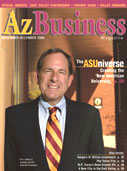Note: All fields are required.
from our blog
February 10, 2021
Seatback Failures
Front occupant seatbacks play a vital safety role in rear-end crashes, similar to the purpose of airbags and seatbelts in frontal impacts. In a rear impact, a front seat should be designed to absorb energy and contain the occupant in the front seating space. Weak, defective front seats can fail, collapse and cause front occupants […]

Arizona Court of Appeals Gives Guidance on Negligent Misrepresentation and Insurance Consumer Fraud
In the case of Larkey v. Health Net Life Insur. Co., (June 2012) the insured, Alan Larkey, had a policy with Blue Cross Blue Shield for personal health insurance. However, Larkey decided that he wanted to switch providers to get a lower deductible without compromising his coverage. Larkey had a family member research health insurance policies; and an insurance agent (“Eddy”) from Health Net told the family member that a Health Net policy would be “just as good” as the Blue Cross Blue Shield policy Larkey owned. Upon hearing this Larkey contracted with Health Net, although he did not receive a copy of the insurance policy at the time of the transaction.
Over 8 years after switching insurers Larkey developed Hepatitis C and needed to undergo liver transplant surgery. However, Larkey was denied pre-certification because his policy specifically excluded this procedure, although his former coverage would have covered it. Larkey then filed a lawsuit alleging negligent misrepresentation and other claims including violation of Arizona’s Consumer Fraud Act against the insurance agent and insurer. The defendants alleged that the statement that their policy was “just as good” as the Blue Cross policy was vague and could not specifically mean that it was the same coverage under both policies. However, the Arizona Court of Appeals ruled that the statement was enough to give an average consumer the expectation that the policy was the same.
The court also went to lengths to explain that the mere fact that a consumer can reveal whether a statement is true or false based on their own investigation is not enough to limit their right to sue a company for misrepresentation and consumer fraud. The term “deceptive” as used in Arizona’s Consumer Fraud Act has been “interpreted to include representations that have a tendency and capacity to convey misleading impressions to consumers even though the interpretation that would not be misleading also are possible.” “The meaning and impression are to be taken from all that is reasonably implied, not just from what is said . . . and in evaluating the representations, the test is whether the least sophisticated reader would be misled.”
The court went on to explain that a claim for negligent misrepresentation may be based on false information given in the form of an opinion. Restatement (Second) of Torts § 552 cmt. b. (“The rule stated in this Section applies not only to information given as to the existence of facts but also to an opinion given upon facts equally well known to both the supplier and the recipient.”). The court held that “under such circumstances, including the fact Eddy was a licensed agent with expertise in recommending health coverage policies, Larkey was entitled to rely on Eddy’s representation the Policy was “just as good as” his Blue Cross policy without conducting his own investigation.” “In the absence of circumstances putting a reasonable person on inquiry, a person is justified in relying on a misrepresentation of a material fact without making further inquiry.” St. Joseph’s Hosp. & Med. Ctr. v. Reserve Life Ins. Co.
This case is helpful for consumers because it shows that insurance agents, who hold themselves out as someone with superior knowledge in the realm of insurance, can be held accountable for failing to investigate and evaluate insurance policies properly. And, insurance companies cannot hide behind vague assurances of coverage then later claim that the language was not certain enough to mislead a consumer. Although keep in mind that insurers are allowed a certain amount of “puffery” so statements like low insurance rates and broad coverage are probably not enough to warrant coverage for specific issues.

quick links
9375 E. Shea Blvd.
Suite 100
Scottsdale, Arizona 85260
Telephone 480-874-2918
Facsimile 480-588-5063
Mailing Address:
Post Office Box 12877
Scottsdale, Arizona 85267





 Subscribe by Email
Subscribe by Email Shane Harward
Shane Harward Find us on Facebook
Find us on Facebook

